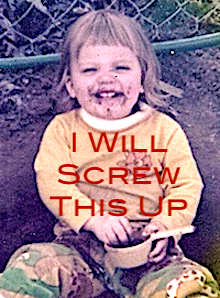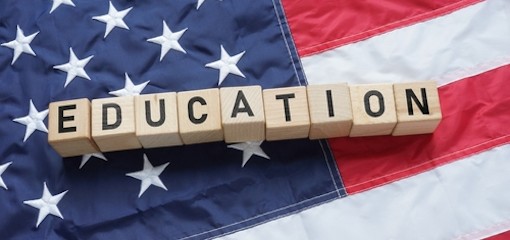Public Education Is Essentially Political
A MiddleWeb Blog

I think our principal was also anticipating that the election would raise strong emotions amongst the staff. I believe we do a decent job around here of keeping the classroom a welcoming place for kids of all political backgrounds, but the principal was certainly right to foresee strong emotions in my case.
Given how long I’ve been teaching (forever), whom I teach (children of rural immigrant families), and where I teach (public school), I have some pronounced feelings about what education is about and whom it is for.
Our principal’s message explicitly centered and protected children, and for educators that is the bottom line. Reading it, however, my heart was not completely easy. I’ve spent the past few days trying to figure out exactly why.
What is “political neutrality”?
I asked myself what a public school would look like if it were actually “politically neutral.” The thought experiment, instructively, requires some epic contortions. We would have to set aside uproar around critical race theory, censorship and free speech; around states rights versus federalism. We would have to ignore Supreme Court cases like Lau vs. Nichols and Brown vs. The Board of Education. We would have to discount laws like Title IX and the Civil Rights Act.
You might justifiably conclude that to strip American education of its political intertwinings is uniquely impossible, a reflection of the nasty insidiousness of political discourse in this country.
Defining the challenge
But let’s pretend it’s not. Let’s go down to the simplest, most universal possible definition of both “public education” and “politics.” These definitions are my own constructions, but they are based in Britannica.com’s online dictionary: it’s my English as a New Language go-to resource for this kind of work, as it avoids the fatal educational error of defining a word for my students by using more words I need to define for my students.
● Public education: the knowledge, skill, and understanding that you get from attending a school, college, or university that is run by the government.
● Politics: the work or job of people who govern.
And here you’ll see the source of my unease: there is no way to disentangle public education and politics at all.
Walking through the doors of a public school building every day, our salaries paid in dollars that are literally collected from our neighbors’ pockets, those of us who work in public education tacitly agree on the following principles: that collectively educating our young is a good, and that our government should have a comprehensive say in how that happens.
This agreement is a political act. It is a political stand. It is not a given, and it is not guaranteed. And no matter if you are Green, Working Party, Conservative, Republican, Democrat, MAGA or independent or don’t vote at all, if you teach in or work for or benefit from a public school, this is your stand.
A communal commitment to our children
The uncertainty facing me as a teacher come January seems overwhelming. It will be important for me to have clear boundaries between my teaching and many of my political views, between my opinions and the young minds in front of me who are still learning how to form their opinions. I agree with my principal wholeheartedly that our schools need to be spaces where students have the freedom and support to come to their own reasoned political conclusions about the world.
But it is a mistake to assume public education as a whole is, or should be, politically neutral. It is not. Public education is a considered, time-honored, and broadly accepted societal commitment in our country to allocate communal resources towards the health and flourishing of our young. As such it is a fundamentally political entity. It is one I am proud of. It is one I will fight for.



































Bravo for expressing the umbilical connection between government and public education. The entire purpose of education is to educate future voters. Public schools welcome everyone and affirm the value of every one for the good of our country.
Congratulations Dina on your terrific article. You speak the truth: “There is no way to disentangle public education and politics.” That has always been true. Thank you for making your clear and courageous voice heard.